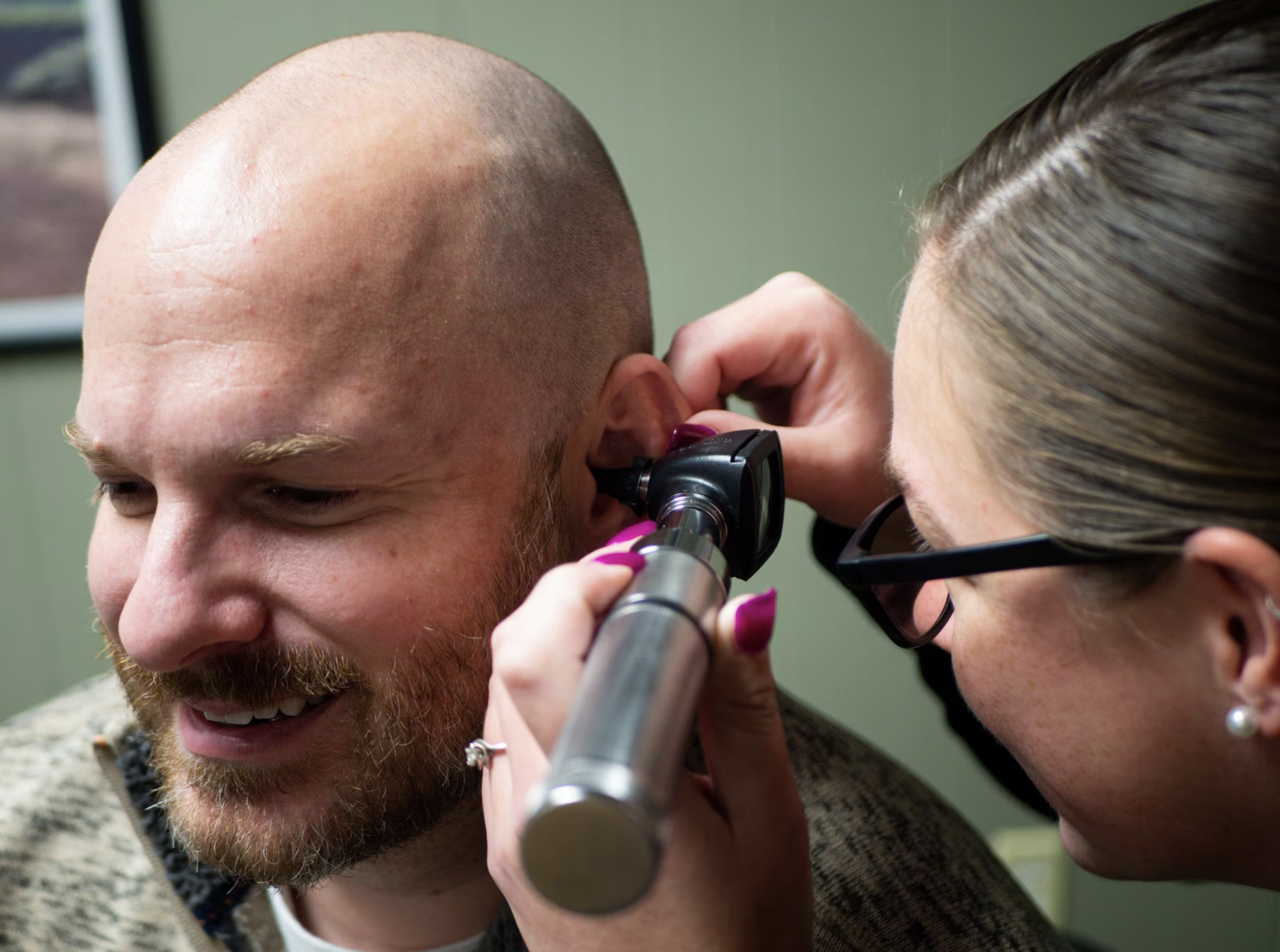A Breakdown of the Different Degrees of Hearing Loss
Any number of factors may contribute to the development of hearing loss over time, from noise exposure and aging to ear infections and other diseases of the inner ear. Left untreated for long enough, all levels of hearing loss can get worse, which can start to have a significant impact on an individual’s quality of life and overall well-being.
This guide explains the varying degrees of hearing loss, how each level is determined, and the limitations and complications each level can cause.

Mild Hearing Loss
Audiologists use hearing tests to determine how loud a sound must be for a patient to hear them, with that loudness being measured in decibels (dB).
Patients who are experiencing mild hearing loss can typically hear sounds that are at least 26 to 40 dB. This level of hearing loss isn’t likely to cause severe day-to-day problems, but it can prevent individuals from hearing soft sounds like leaves rustling, birds chirping, and even some essential parts of soft spoken conversation.
Mild hearing loss can also make it difficult to hear other people speaking in noisy environments. A common sign that you may have mild hearing loss is finding yourself asking others to repeat themselves so that you can understand their speech. These patients may also find themselves turning up the volume of the television. A mild hearing loss is therefore not necessarily a mild problem.
Moderate Hearing Loss
Moderate hearing loss occurs when an individual struggles to hear sounds under the 41 to 55 dB range.
This level is associated with increased difficulty in hearing speech sounds, to the point that understanding speech becomes nearly impossible if background noise is present and hearing aids aren’t worn. Individuals with this level of hearing loss often have particular trouble with higher-frequency speech sounds, including “f,” “s,” and “th” sounds.
Moderately Severe Hearing Loss
Hearing loss of sounds below the 56 to 70 dB range is considered moderately severe.
This degree of hearing loss makes understanding speech at normal volumes effectively impossible without hearing aids, even in an otherwise quiet environment. Unfortunately, at this level of hearing loss and above, speech may be somewhat difficult to hear and interpret even with the use of hearing aids, especially if other noises and distractions are present.
Severe Hearing Loss
Individuals unable to hear sounds under the 71 to 90 dB range are considered to have severe hearing loss.
At this level, hearing speech becomes virtually impossible unless speech sounds are produced very loudly. Without the help of hearing aids or cochlear implants, individuals with severe hearing loss will likely struggle to hear many of the common sounds of daily life, from speech and television audio to background noises and the sounds of traffic.
Profound Hearing Loss
When an individual can no longer hear sounds under 91 dB, they are suffering from profound hearing loss.
Profound hearing loss makes hearing impossible, even with increased efforts. This level of hearing loss is so intense that even with the help of hearing aids, individuals may struggle to hear some of the loudest sounds people typically encounter, including alarms, power tools, and airplane engines.
Let Associated Hearing Professionals Check Your Ears for Hearing Loss
On average, 15% of U.S. adults — or 37.5 million — report some level of difficulty hearing.
When left untreated, hearing loss can worsen over time and significantly impact how you interact with loved ones, perform at your job, and enjoy the pleasures of music and entertainment. Untreated hearing loss has been associated with several health issues, including cognitive decline, depression, cardiovascular disease, diabetes, and risk of falling. Your quality of life depends on protecting your ears as much as you can and seeking treatment when signs of pain, ear infections, and hearing loss are first detected.
Serving St. Louis and Chesterfield, our team at Associated Hearing Professionals provides comprehensive hearing tests to better understand your level of hearing loss and determine whether hearing aids are right for you.
If you feel that you may be experiencing any degree of hearing loss, schedule an appointment with us today by filling out our online contact form.

